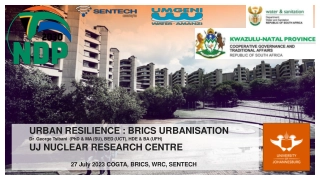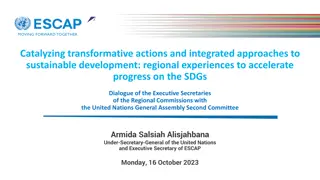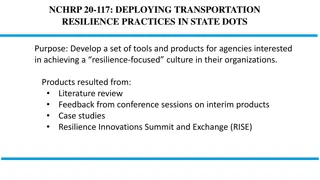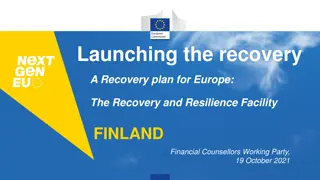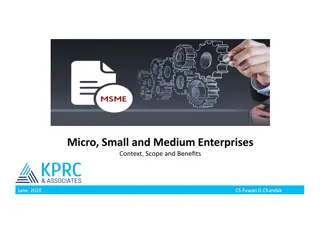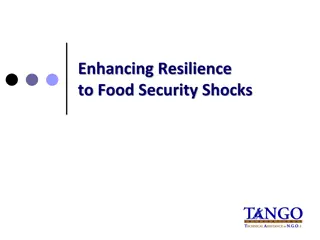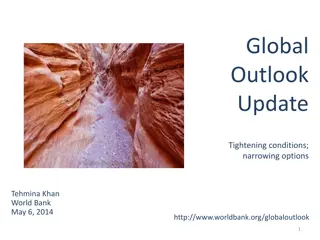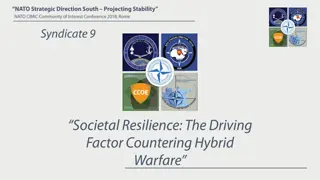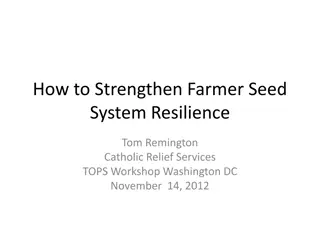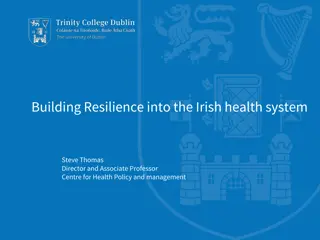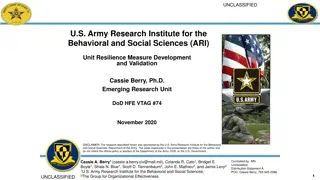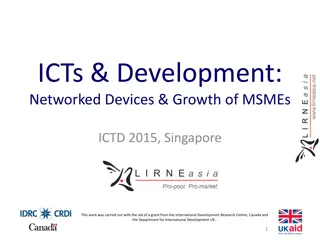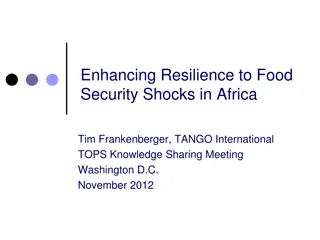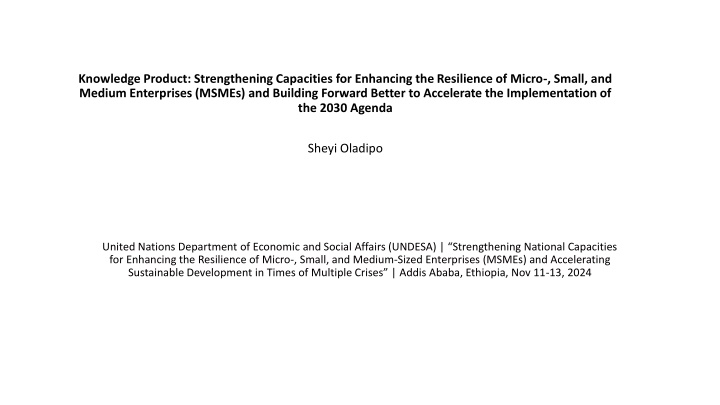
Strengthening MSME Resilience and Accelerating Development
MSMEs are vital for economic growth, job creation, and innovation. Learn about strategies to enhance their resilience, key roles in the 2030 Agenda, and ways to navigate crises for sustainable development.
Download Presentation

Please find below an Image/Link to download the presentation.
The content on the website is provided AS IS for your information and personal use only. It may not be sold, licensed, or shared on other websites without obtaining consent from the author. If you encounter any issues during the download, it is possible that the publisher has removed the file from their server.
You are allowed to download the files provided on this website for personal or commercial use, subject to the condition that they are used lawfully. All files are the property of their respective owners.
The content on the website is provided AS IS for your information and personal use only. It may not be sold, licensed, or shared on other websites without obtaining consent from the author.
E N D
Presentation Transcript
Knowledge Product: Strengthening Capacities for Enhancing the Resilience of Micro-, Small, and Medium Enterprises (MSMEs) and Building Forward Better to Accelerate the Implementation of the 2030 Agenda Sheyi Oladipo United Nations Department of Economic and Social Affairs (UNDESA) | Strengthening National Capacities for Enhancing the Resilience of Micro-, Small, and Medium-Sized Enterprises (MSMEs) and Accelerating Sustainable Development in Times of Multiple Crises | Addis Ababa, Ethiopia, Nov 11-13, 2024
Outline Introduction: The importance of MSMEs in the global economy Importance of MSMEs and their role in achieving the 2030 Agenda Resilience of MSMEs Key strategies for strengthening MSME Resilience Lessons from the pandemic and other disasters Recommendations
Introduction MSMEs play a major role in economic growth and development Job creation, poverty alleviation, innovation, and inclusive growth MSMEs contribute substantially to GDP Evidence from the Philippines, Indonesia, Nigeria, India, among others MSMEs are more agile and able to adapt more quickly to changes in their operating environments Their flexibility under changing conditions promotes technological and social innovations
Defining MSMEs MSMEs are categorized based on the number of employees and turnover/asset value of the enterprise. Many MSMEs in developing countries do not reveal their asset value so effectively, classification is often based on number of employees. MSME Category Numberof employees Total Assets (in US dollars) Annual salesGMD Micro Less than 10 Less than 100,000 Less than 100,000 Small 10 to 49 100,000 to 3million 100,000 to 3million Medium-sized 50 to 300 3 million to15 million 3 million to15 million Source: IFC 2023 Large More than 300 More than 15 million More than 15 million
The role of MSMEs in achieving the 2030 Agenda MSMEs account for a significant portion of global employment Provide jobs for vulnerable and marginalized groups (reduce inequality) Offer opportunities for entrepreneurship and contribute to providing decent work Promote gender equality and socio-economic inclusion: women- and youth- owned MSMEs are prevalent in agriculture, manufacturing, trade, and services. Arise often in response to identified insufficiencies in the economy, thereby boosting domestic value chains and contributing to regional development
The role of MSMEs in achieving the 2030 Agenda Serve as suppliers and contractors to larger enterprises and play an important role in developing local industries and integrating them into the global value chain, thus boosting industrial infrastructure. Diversification and development of niche markets by identifying and filling gaps in their immediate localities. Promote industry, innovation, and infrastructure through their presence in upcoming sectors like renewable energy and green technology Bridge access of rural and underserved areas to modern digital and physical infrastructure by proffering creative solutions in areas like fintech and e- commerce (SDG 9)
Contributions of MSMEs to SDGs SDG 1 No Poverty MSMEs are recognized as forming economic backbone, contributing to poverty reduction, contributing to reduction in income poverty across regions, and to growth of the private sector to absorb new entrants into the labor market. In Zambia, supporting rural-based MSMEs is one of the country s four strategic interventions to eradicate extreme hunger and poverty. Federated States of Micronesia the Coconut for Life initiative supports MSMEs as key platforms for poverty reduction in rural areas. Solomon Islands Rural Development Programme has delivered 330 community infrastructure projects and 35 agriculture partnerships projects designed to alleviate poverty and improve livelihoods in rural areas.
Contributions of MSMEs to SDGs SDG 2 Zero Hunger Papua New Guinea PGK 200 million earmarked for agriculture-based MSMEs to increase their access to sustainable agriculture. SDG 4 Quality Education MSMEs in the DRC are expanding the access of poor children to educational opportunities by providing collective funding for the building of 829 schools, rehabilitation of 684 classrooms, and the installation of 175 school canteens. SDG 5 Gender Equality Republic of Moldova launched a women in business program; Slovenia has enhancing employment possibilities for women and youth, and developing MSMEs as a focus of the country s development cooperation strategy.
Contributions of MSMEs to SDGs SDG 7 Affordable and Clean Energy MSMEs recognized in Argentina, Austria and India as boosting energy efficiency. In Nepal, MSMEs are viewed as vehicles for disseminating the adoption of renewable energy solutions. SDG 8 Decent Work and Economic Growth Most cited contribution of MSMEs, constituting the majority of business entities and engaging the largest share of the workforce in many emerging economies. SDG 9 Industry Innovation and Infrastructure MSMEs galvanize progress in digitization, innovation, and technology. In Bulgaria, jobs within the ICT sector accounted for more than 33 percent of new jobs in 2011- 2017. Developing production-based infrastructure with a focus on MSMEs is included in Mozambique National Development Strategy 2015-2035.
Contributions of MSMEs to SDGs SDG 10 Reduced Inequalities Bangladesh, Kyrgyzstan, Liberia, Libya, Nepal, Niger, and the Republic of Moldova view MSMEs as engines for reducing income inequalities and promoting the participation of vulnerable groups in economic activities. SDG 17 Partnership for the Goals Supporting the growth of MSMEs is a focus of the development strategy of several countries e.g. African-Austrian SME Investment Facility, Integrated Territorial Development Project in Kosovo has helped 300 MSMEs and individuals to develop their businesses. Slovenia s Development Cooperation and Humanitarian Aid Strategy has a goal of enhancing employment possibilities for women, youth, and the development of MSMEs.
Challenges facing MSMEs Access to finance, technology, poor market reach, and regulatory hurdles leading to many remaining informal Lack of collateral resulting in MSMEs being regarded as high risk by formal lending channels The IFC estimates that globally, 74 percent of MSMEs are informal Obtaining opportunities in the formal economy is more difficult for vulnerable groups Desire to save money by avoiding paying taxes or contributing to social insurance Seeking to avoid burdensome red tape in cases where there is a lot of bureaucracy or corruption in the formalization process Lack of faith in formal institutions
Challenges facing MSMEs Consequences of informality are significant Lower incomes and limited savings Workers unable to access formal support services during unemployment, disability, or retirement This category of workers would benefit from having access to private or employer-provided insurance and government safety nets
Resilience of MSMEs Defining resilience in the context of MSMEs Ability to withstand, adapt to, and recover from disruptions and challenges, and thrive post-crisis. Maintaining operations, preserving jobs, and continuing to contribute to economic growth despite adversities Resilience Indicators financial stability - MSMEs with strong financial foundations and ability to secure funding in challenging times digital adaptation - improving operational flexibility and efficiency through the adoption of digital solutions for financial transactions, access to social protection, market diversification - Reducing reliance on a single revenue stream or customer base through diversification of products, services, and markets
Assessment of current resilience levels among MSMEs Findings from study conducted in 2022 by Oxford Economics suggest that despite the hardships faced, many MSMEs have emerged from the pandemic with enhanced resilience and a forward-looking approach. 58 percent of MSMEs claimed that the COVID-19 pandemic helped build their resilience 36 percent of MSMEs feel more optimistic about their prospects compared to the previous year 49 percent of MSMEs intended to seek financing in 2023, and an additional 29 percent expected to raise finance from 2024, primarily to promote growth
Regional variations in MSME resilience Regional variations in MSME resilience MSME growth and development in many countries continues to be a huge challenge, and the COVID-19 pandemic has exacerbated the challenge Different stakeholders - mainly Governments and private sector and development organizations - have programs and grants already in place to support the development of MSMEs in Africa. target grants and loans, stimulus packages and special vehicles for supporting MSMEs, such as development of infrastructure, improvement of markets and access to credit, streamlining of tax laws and special funds in support of marginalized groups, such as the Youth and Women s Fund in Kenya. Through the country s partial credit guarantee scheme, the Government has provided the initial capital needed and partnered with banks to facilitate access to finance of MSMEs that have been negatively impacted by the COVID-19 crisis.
Lessons from the pandemic and other disasters To reverse this serious setback to development progress and poverty reduction, countries will need to prepare for a different economy post- COVID, by allowing capital, labor, skills, and innovation to move into new businesses and sectors Governments around the world realize that SMEs constitute the battleground on which the pandemic and the broader economic recession most directly interact. In addition to addressing the health crisis, they have scrambled to alleviate the impact of the coronavirus disease (COVID-19) pandemic on small businesses, introducing policies to help those enterprise scope with short- term financial risks and long-term business consequences. This will reduce layoffs, prevent bankruptcy, encourage investment and help economies get back on their feet as soon as possible, as the crisis abates.
Recommendations Different stakeholders - mainly Governments and private sector and development organizations - have programmes and grants already in place to support the development of MSMEs in Africa Need for coordinated global and local action to build resilient MSMEs and accelerate sustainable development. MSME formalization is a multifaceted and multi-stakeholder approach and to support formalization, Governments should establish policies that foster the establishment of MSMEs as associations whose values and principles may be clearly defined by government or any other entity that might be tasked by the government to provide such a definition. The General Conference of the International Labour Organization (ILO) adopted an instrument focused on cooperatives, namely, the Promotion of Cooperatives Recommendation, 2002, (No 193), The Conference, inter alia, noted that cooperatives have an important role to play in transforming - across all countries and relevant enterprise sectors - the often marginal survival activities into legally protected work, fully integrated into mainstream economic life.


